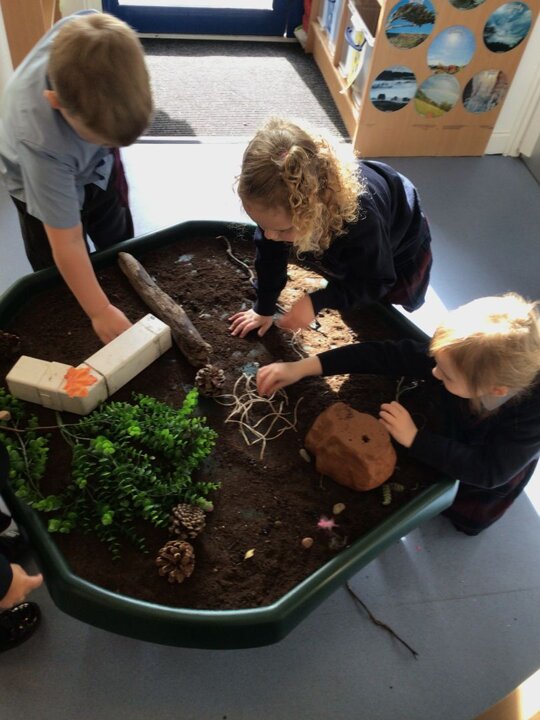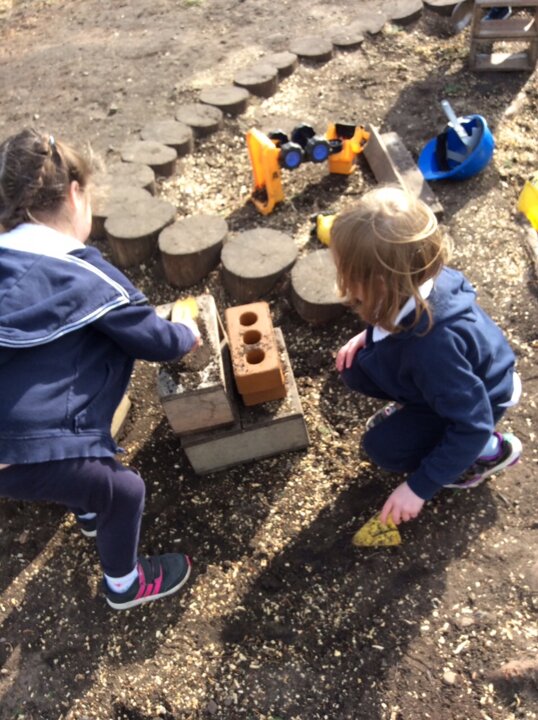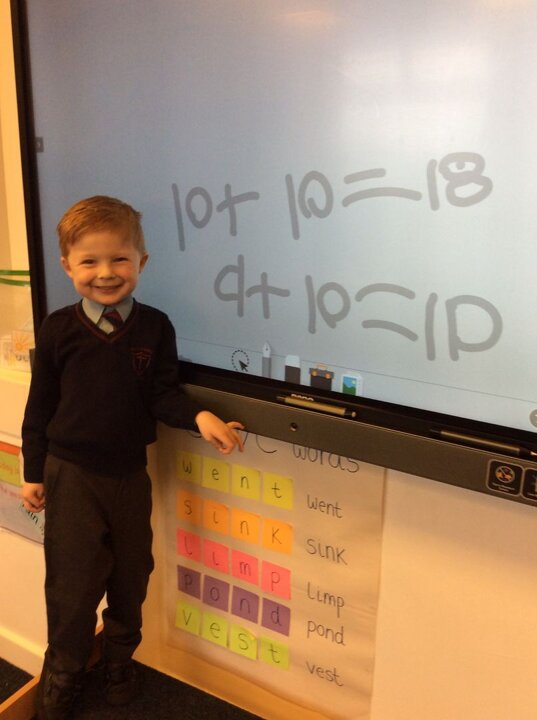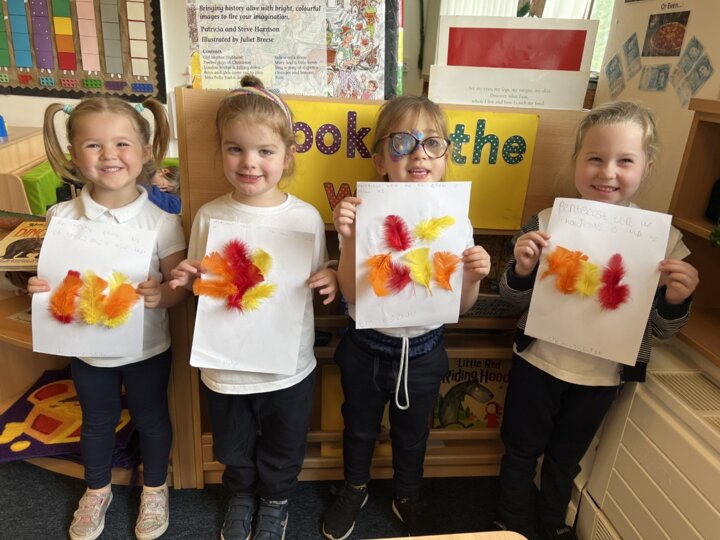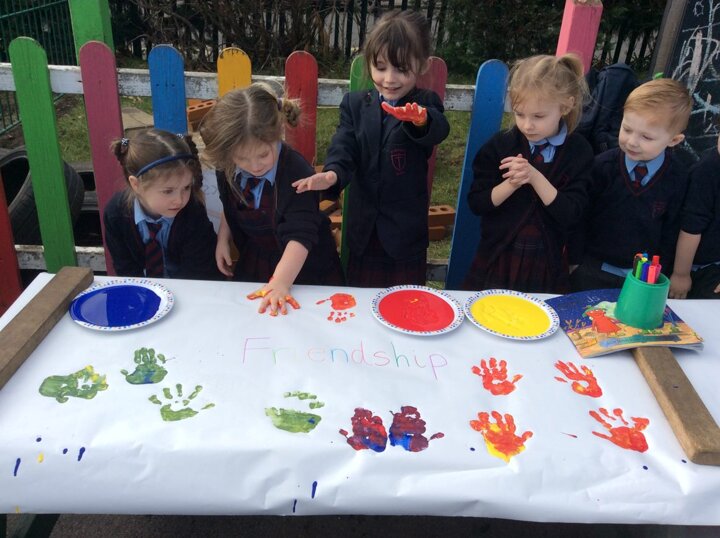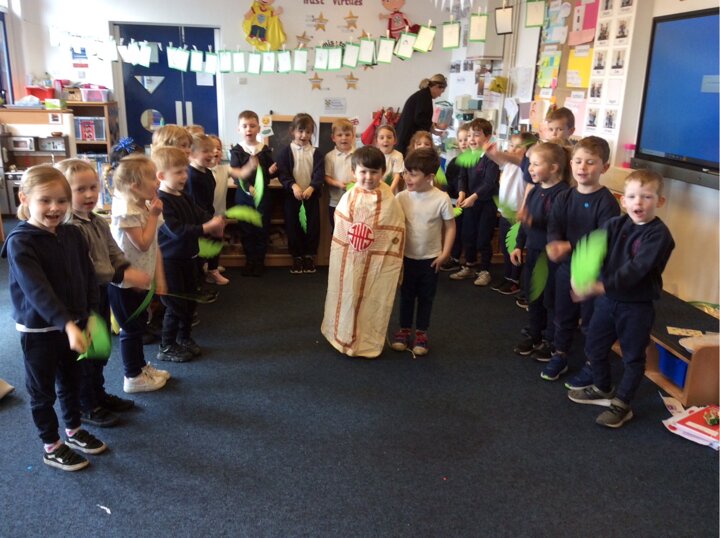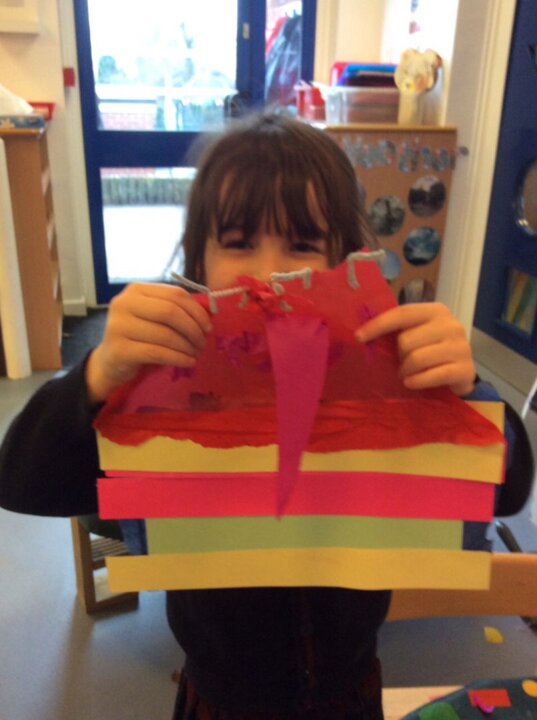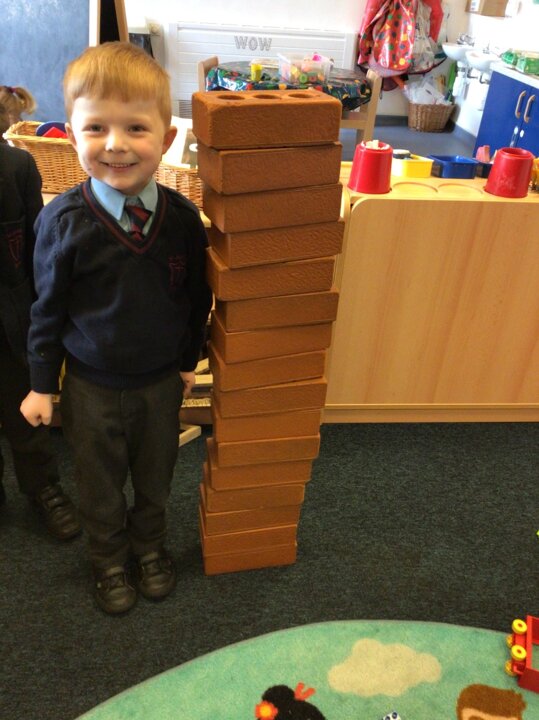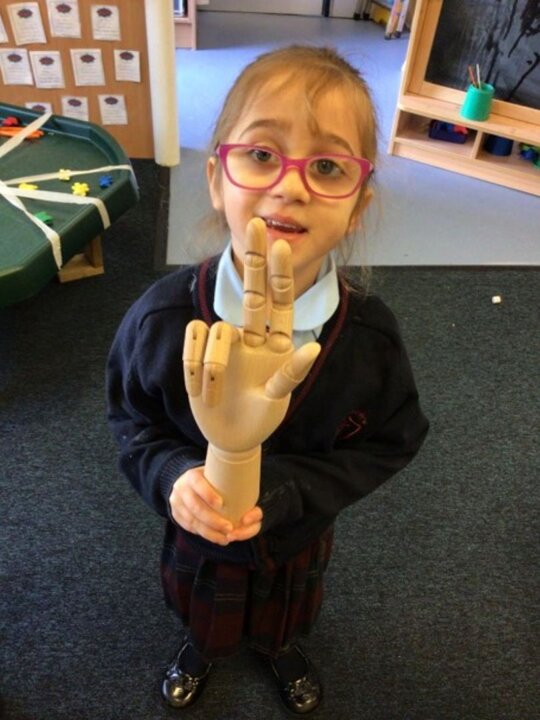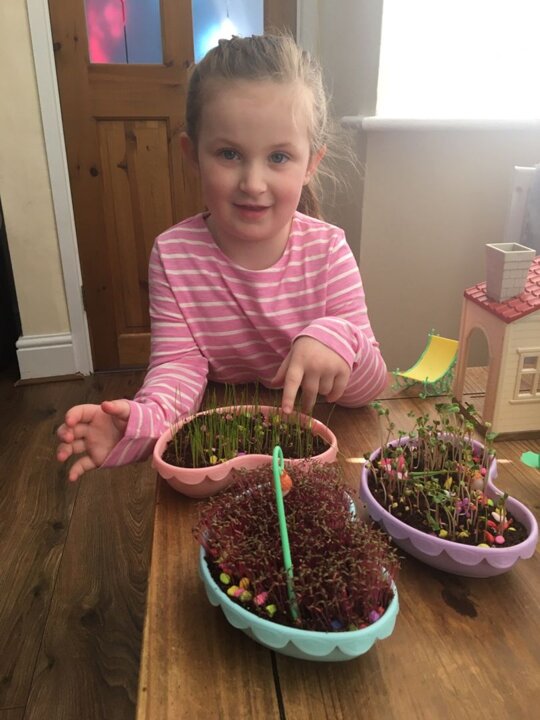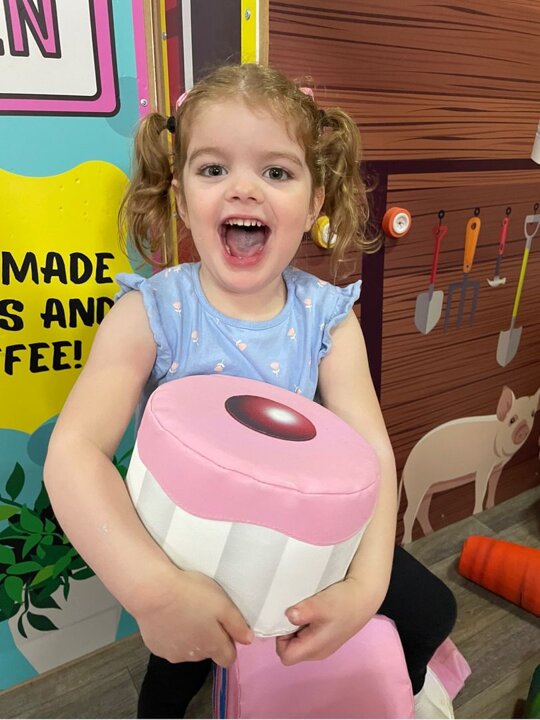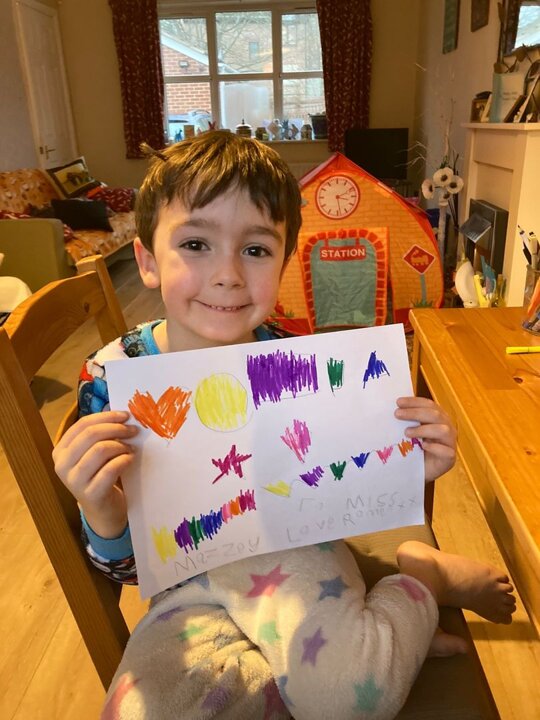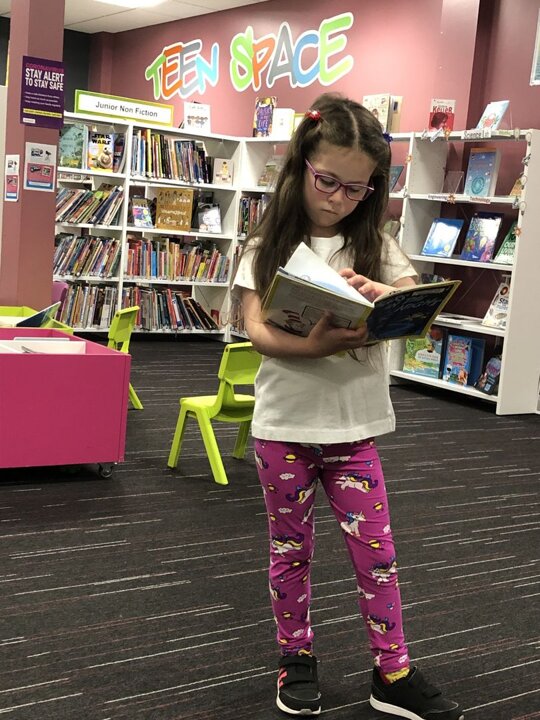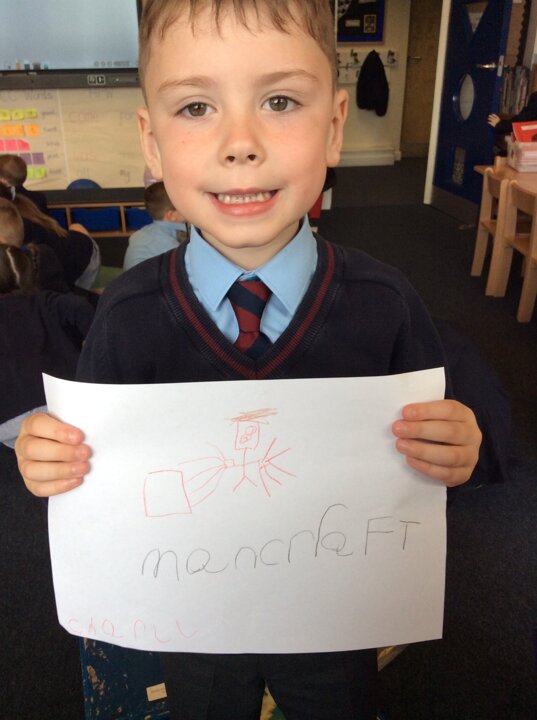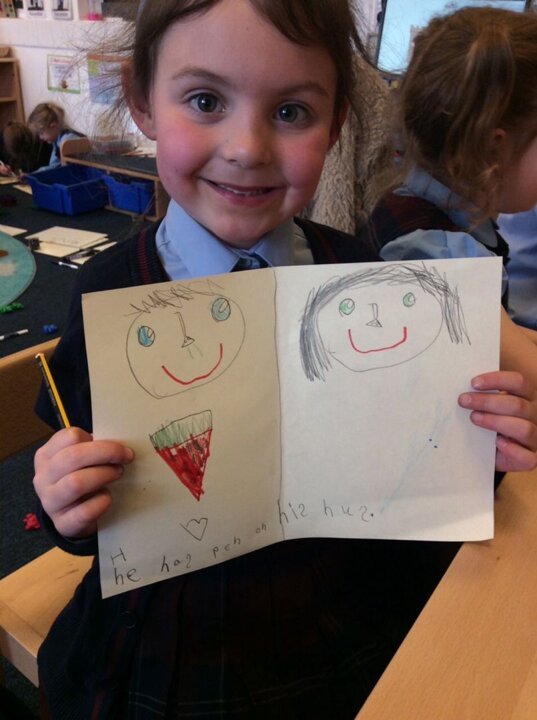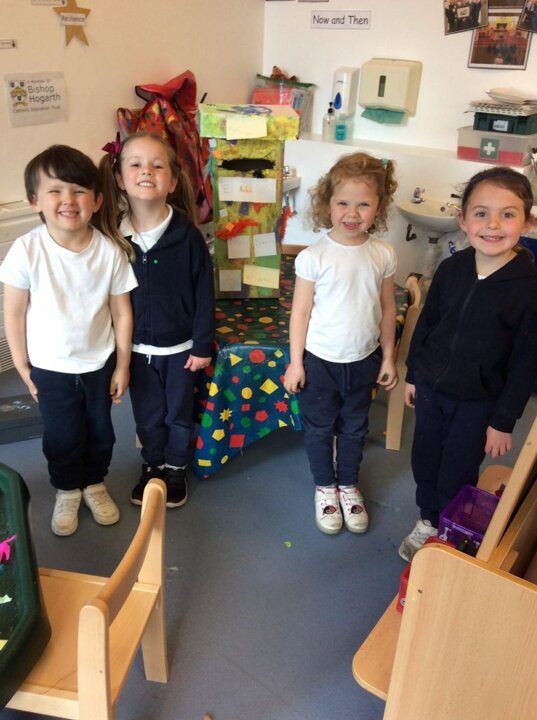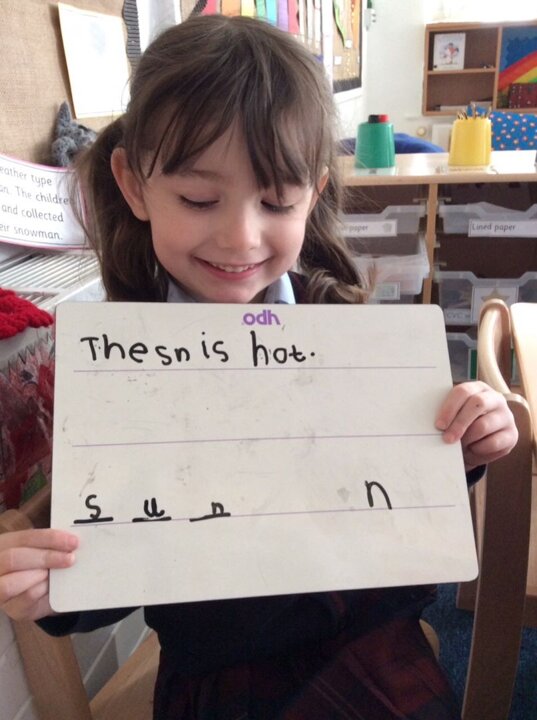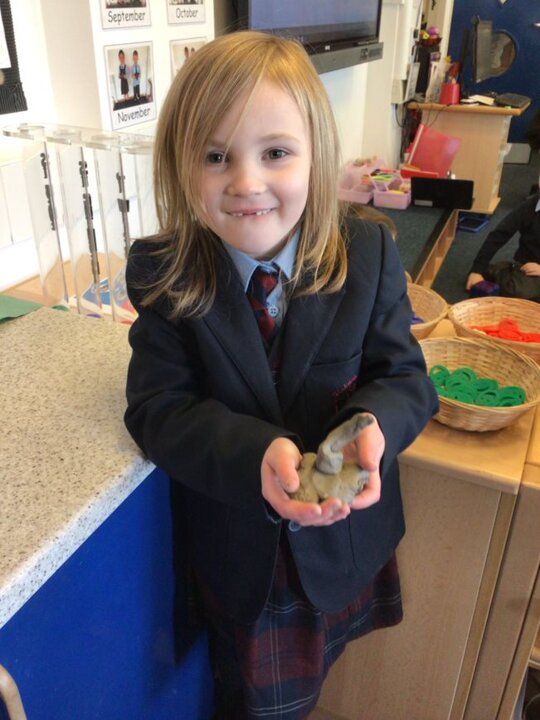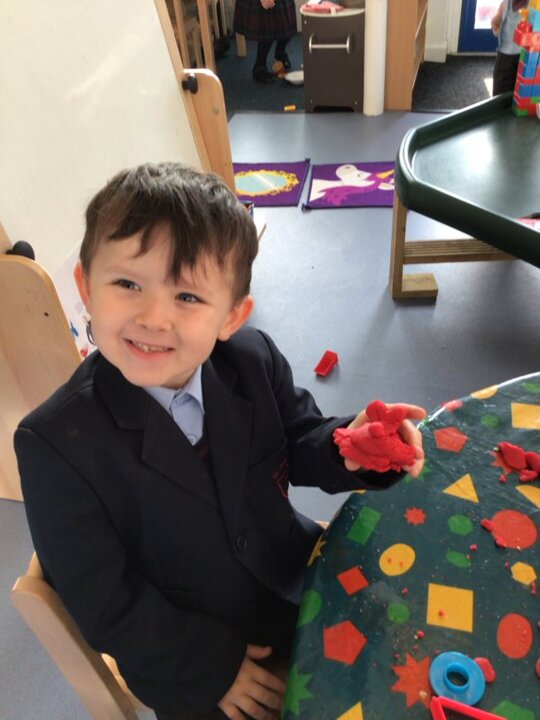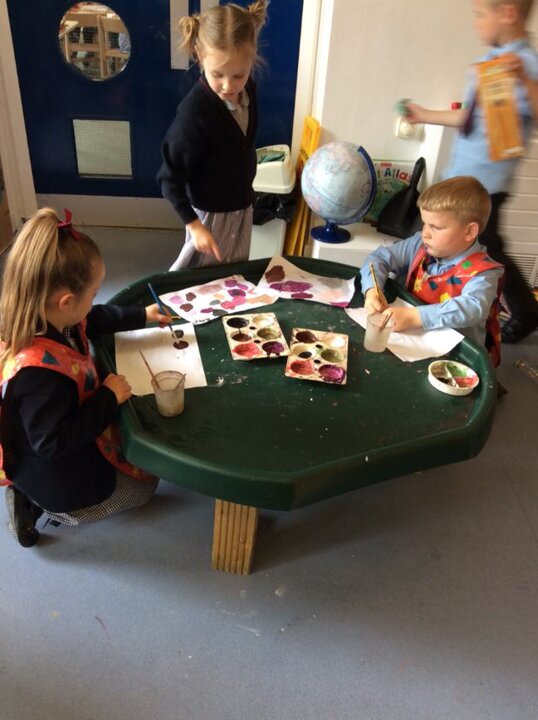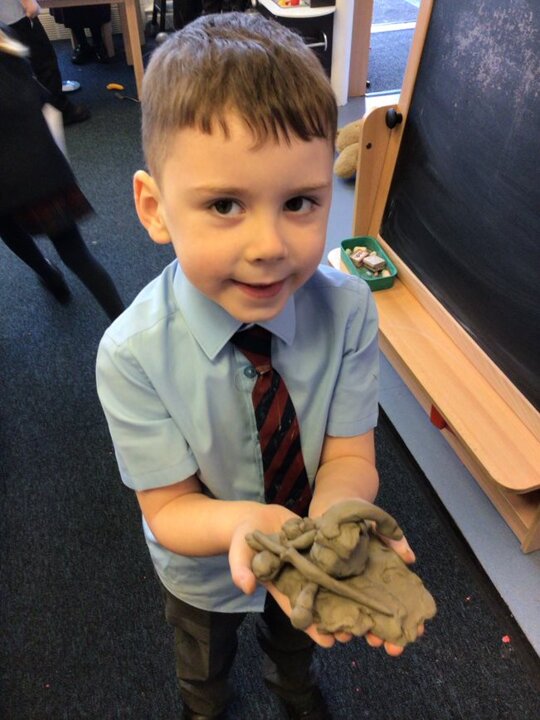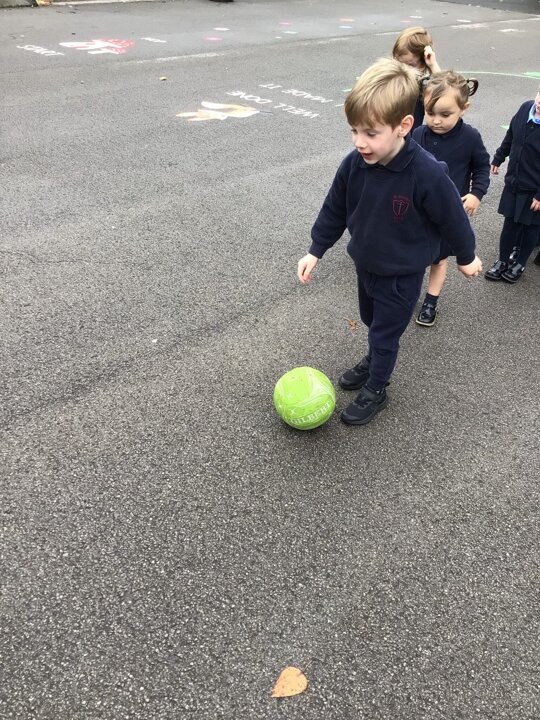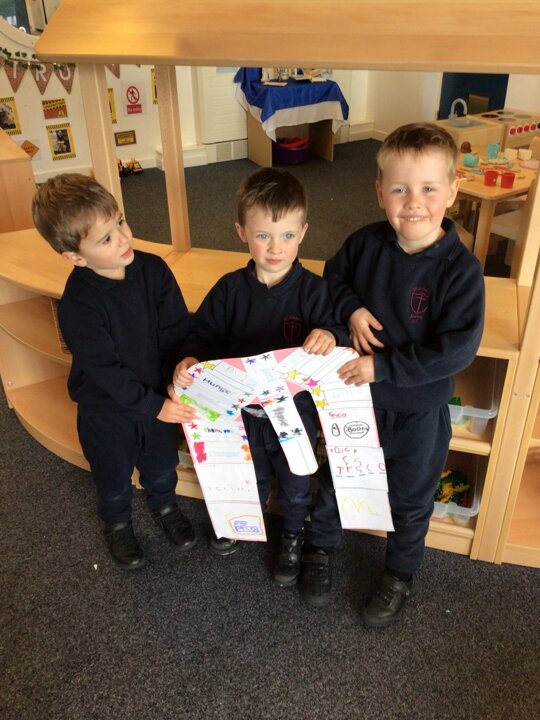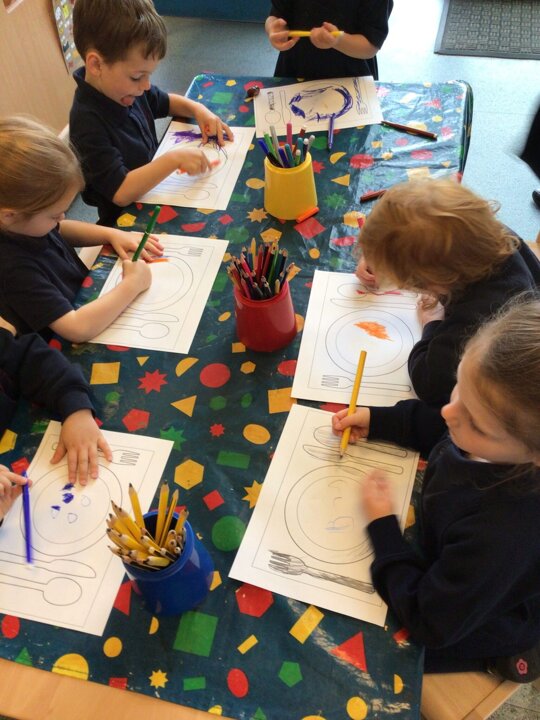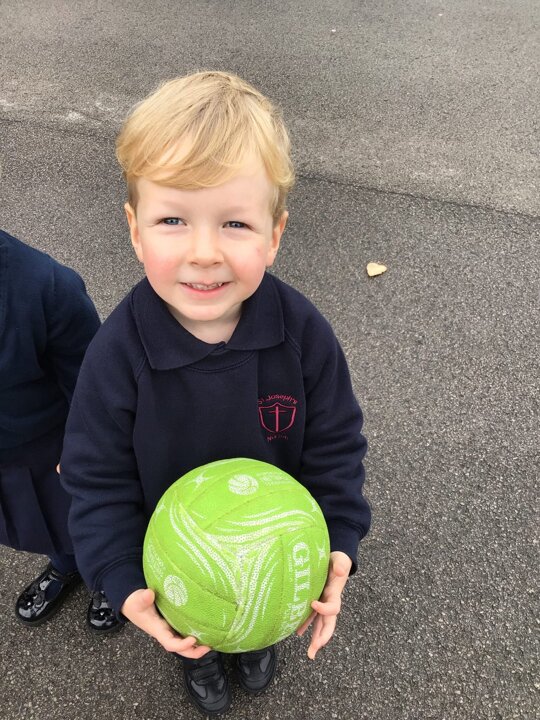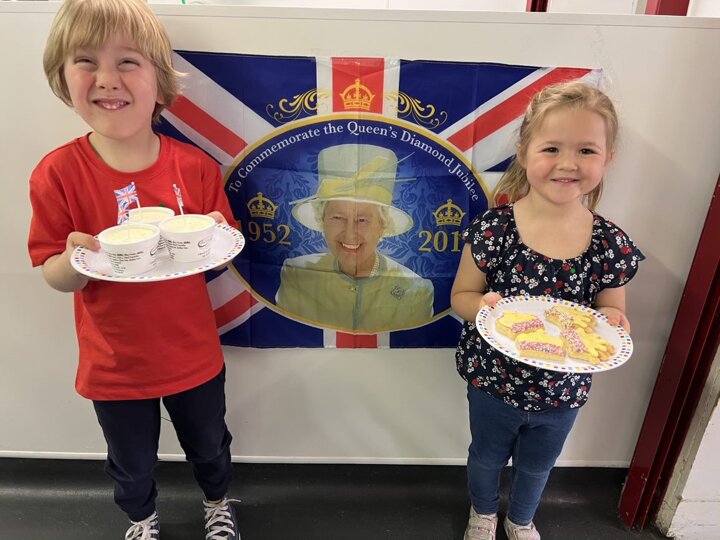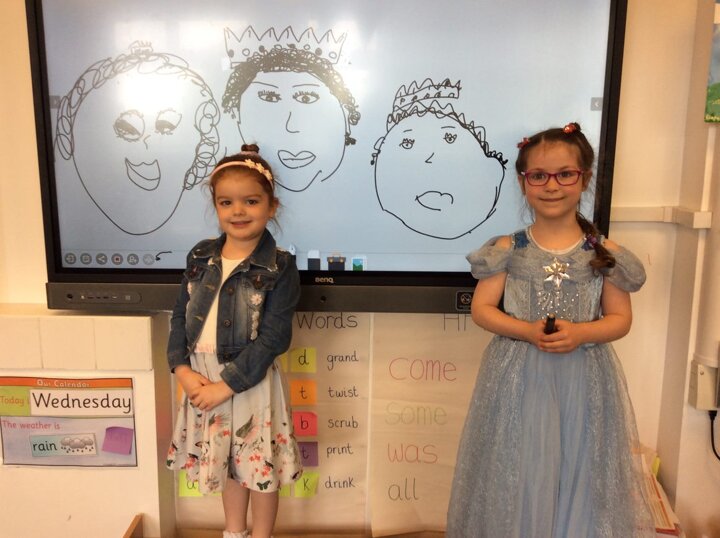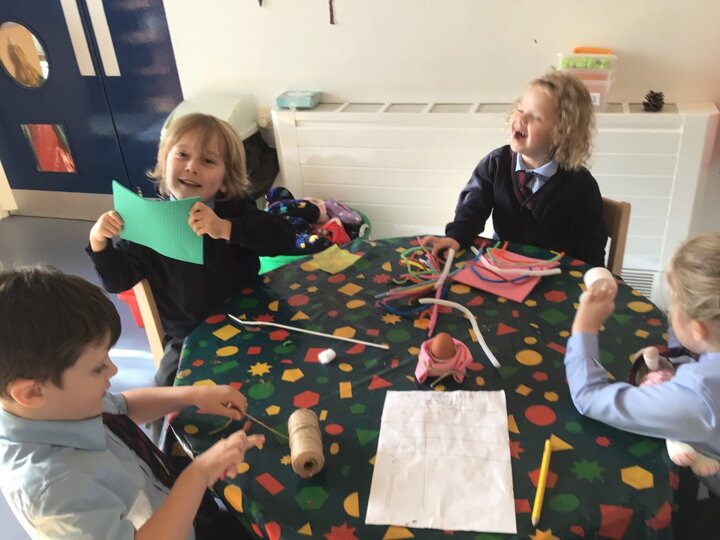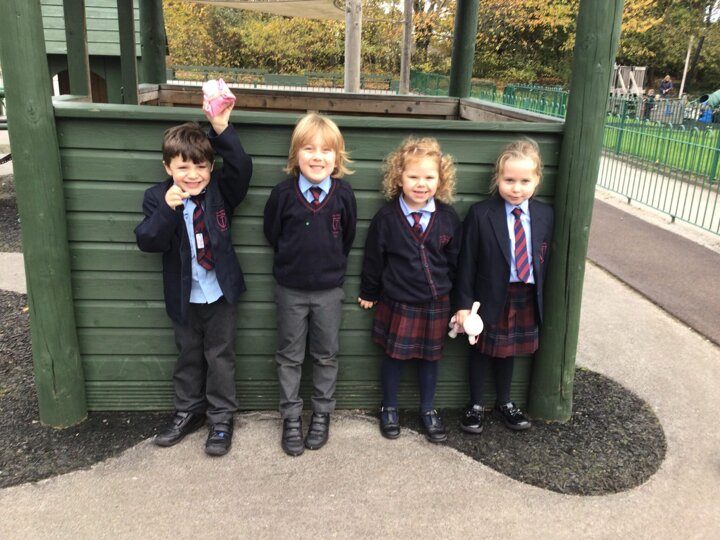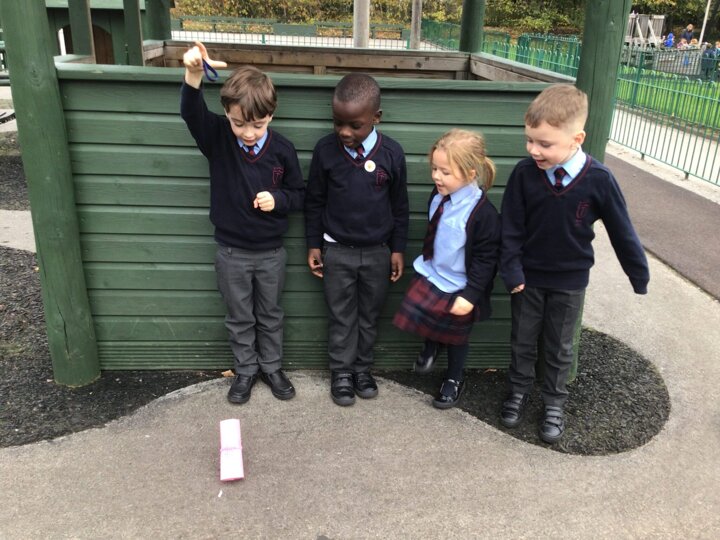Our Early Years Vision

St Joseph’s Catholic Academy aims to provide a creative, inclusive, challenging, and real-world curriculum that inspires future thinkers, innovators, and problem solvers. We promote an immersive environment, both indoors and outdoors, that stimulates and supports high quality learning to support children to become ambitious lifelong learners. It is our intent that the children who enter our EYFS develop physically, verbally, cognitively, emotionally, and faithfully whilst embedding positive attitudes and virtues towards school and learning.
Early Reading

Reading is at the heart of our curriculum and our aim is to encourage a love of reading right from the start. In EYFS we have ‘Our Favourite 5’ each half term. The aim is to expose children to a range of books that not only develop a love of reading, but have been chosen specifically to develop their oracy, vocabulary, and comprehension. Our core texts cover a range of genres including fiction, non-fiction, PSHE, multicultural and mathematical stories. These five books will be embedded in our provision through activities, story sessions and on display for children to access independently. Through this, children begin to internalise new vocabulary, language patterns and begin to retell stories. At St Joseph’s we promise:
- Exposure to high-quality texts from our Reading Spine
- Modell reading and provide story re-telling opportunities
- Structured comprehension questions based on Blooms Taxonomy
- Spend time in our Reading Nook and in our outdoor reading sheds
- A focus on Tier 1, 2 and 3 Vocabulary which is planned via topics
- Dedicated phonics and group reading sessions
- Provide 3x group reads weekly
- Inspirational visits e.g., library visits, author visits
- Participation in reading events e.g. WBD, National Poetry Day, Author Celebrations, Nursery Rhyme Week etc
- Work alongside parents to support their children’s early reading and writing skills
- Promote cooperative learning behaviours which develop oracy and interdependence
Enrichment

Tweddle Farm 2022
At St Joseph’s we offer a variety of enrichment opportunities for our EY children. We provide ‘Engage Days’ each half term to introduce new topics to captivate our children and to motivate new learning. Please see some examples below.
We plan educational visits based around the children’s interests and we also organise visitors to support children’s learning in school.
During the Christmas period our EY children perform ‘The Nativity’ and each year our parents are invited to ‘Stay and Play’ sessions to work alongside their children in our school environment.
Impact

The impact of our EYFS curriculum is measured by how effectively it helps our children develop into well rounded individuals who embody our school values and carry with them the knowledge, skills and attitudes which will make them lifelong learners and valuable future citizens. Our children have varied and diverse starting points. At St Joseph’s we have high expectations to ensure that all children make ‘strong progress’ across all of the areas of the EYFS curriculum.
Implementation
At St Joseph’s, our pedagogical approach allows the children to thrive by experiencing an enriched learning environment where they can learn through play, both indoors and outdoors.
Our classrooms have been designed to promote the importance of the unique child and understand that every child learns in different ways. They aim to capture the interests of all our pupils through designated areas for construction and building play, small world imaginary play, dry and wet sand trays, water play, playdough area, a realistic home corner, open ended role play (topic related), maths areas, literacy areas, ICT, and creative stations. Provision is changed and adapted regular based on children’s themes and interests.
Our Early Years classrooms lead outside onto an EY garden, a woodland area and an adventure playground which provide optimum outdoor opportunities. Children have daily opportunities to access this outdoor provision and woodland work sessions in all weathers to play and investigate. Here they form relationships with others, assess risks for themselves and have the confidence and resilience to attempt challenges, having a go and trying again. The Adventure play equipment helps build children’s gross motor skills and physical development to aid the practical skills of writing and poses challenges to build confidence and self-esteem. Sharing equipment and space and negotiating turn taking are important skills for our children to acquire and helps develop children’s communication.
Pupils learn through a balance of both adult led and child-initiated learning opportunities. The timetables are structured carefully to provide a rich and varied creative curriculum, and changes throughout the year to take into consideration the changing needs of the children.
In EYFS we aim to recognise children’s prior learning, both from previous settings and their experiences at home. We work in partnership with parents, carers, and other settings to provide the best possible start at St Joseph’s, ensuring each individual reaches their full potential from their various starting points. We do this by placing a strong emphasis on the Prime Areas of learning which include, Personal, Social and Emotional Development, Communication and Language and Physical Development. These are all fundamental areas which allow children to start their learning journey here with us. All members of EYFS staff at St Joseph’s understand the importance of child development and recognise the factors below are crucial for children to progress and succeed during their time here.
Intent
Our Early Years setting follows the curriculum as outlined in the EYFS Framework. The EYFS is made up of seven areas of learning. All seven areas of learning and development are equally important and interconnected.
There are three prime areas of learning:
- Personal, Social and Emotional Development
- Communication and Language
- Physical Development
There are four specific areas:
- Literacy
- Mathematics
- Understanding the World
- Expressive Arts and Design
In addition to these areas of learning, we strive for our children to develop effective characteristics of learning which will enable them to become learners for life. We aim to support children to play and explore, be actively involved in their own learning, and develop the ability to make links and think critically.
A child’s ‘Learning Journey’ begins in Early Years. Early Years is the foundation of all learning and is a critical stage of our children’s development. We believe that the Early Years Foundation Stage is crucial in securing solid fundamentals that children are going to continue to build upon throughout their educational journey at St Joseph’s.
At St Joseph’s, we believe that high level engagement ensures high level attainment. We therefore provide an engaging curriculum that maximises opportunities for meaningful cross-curricular links and learning experiences, as well as promoting the unique child by offering extended periods of play and sustained thinking. Each half term, EYFS staff introduce a new theme/topic to provide inspiration for learning. Topics and themes are devised based upon children’s interests entering their setting and change accordingly and flexibly throughout the year.
The Early Years curriculum is delivered through:
- A stimulating learning environment with changing provision to meet the interests of all children throughout the year.
- Well planned and purposeful play based activities
- Teacher directed lessons and learning activities
- Child initiated activities based upon an ‘in the moment’ approach
- Opportunities for exploration, choice and decision making by the children
- Well-resourced indoor and outdoor environments
- The Early Years Teaching ensure that children are equipped with a range of knowledge, skills and experiences that provide the right foundation for good progress through school and life.
- Ensures that each child’s education has continuity and progression
- Enables all children to contribute positively within a culturally diverse society
- Opportunities to learn in different environments.
In Early Years our pupils will:
- Develop language acquisition and expand their vocabulary in order to become confident and effective communicators.
- Extend their understanding in personal, social, and emotional development to become resilient and self-assured learners.
- Be taught how to manage their feelings and behaviour in a range of situations and show compassion towards others.
- Develop their knowledge in early literacy and mathematics.
- Acquire a range of physical key skills including rolling, bowling, throwing, catching, fine and gross motor control.
- Acquire a range of artistic key skills including drawing, painting, collage, sculpture, textiles, printing.
- Explore the world around them and deepen their understanding of living things and the environment.
- Experience a curriculum immersed in story and literature.
- Begin to transfer their learning (taught skills) into the wider environment especially the outdoors and become competent problem solvers.
- Talk about features of their own immediate environment and how they might vary from other environments.
- Gain knowledge about past and present events in their own lives and of family members.
Maths
Children develop a love of maths through games, songs, rhymes and play, using concrete manipulatives and pictorial structures and representations which are then rehearsed applied and recorded within their own child-led exploration. In addition to these opportunities, adult-led time is given to the teaching of a wide range of Mathematical skills. We also use elements of Mastery Maths strategies to support children to make critical links and representations of number within our environments. High quality learning environments and meaningful interactions with adults help develop mathematical thinking. Children have daily, ‘Maths Moments’ and meaningful opportunities throughout the day to develop fluency, revisit key concepts and address misconceptions in a variety of different ways. For example, counting and comparing numbers during our daily book votes, counting and comparing snack choices, registration calculations.
Parents as Partners
We recognise that children learn and develop well when there is a strong partnership between practitioners and parents and/or carers. We value this partnership and create strong links with parents through:
- Talking to parents about their child before they join Nursery through telephone calls, Nursery visits and welcome packs
- Providing children and parents with the opportunity to spend an induction morning/afternoon in the Foundation Unit before starting Nursery
- Inviting all parents to an induction meeting the term before their child begins Nursery.
- Encouraging parents to talk to the child’s teacher if there are any concerns.
- Communicate with parents regarding their child’s learning journey on SeeSaw.
- Encourage parents to play an active role in their child’s education and to share their home journey via SeeSaw.
- We plan and deliver termly ‘Stay and Play’ sessions for parents, where parents are invited to play alongside their child for an extended length of time. This gives parents the opportunity to develop a greater understanding of the Early Years curriculum, gain more of an understanding of our expectations and chat with the teacher about their child’s progress.
- Providing termly curriculum newsletters.
- Providing regular Facebook posts, St Joseph’s postcards and messages to share activities and learning.
- Encouraging parents to comment on the FS and suggest improvements through the use of questionnaires and verbal feedback.
Parents and/or carers are kept up to date with their child’s progress and development daily through SeeSaw but also have termly consultations/reports with targets to support their next steps. This helps to provide parents and/or carers with a well-rounded picture of their child’s knowledge, understanding and abilities.
Phonics
In Nursery, we concentrate on developing children's speaking and listening skills and lays the foundations for reading and writing. We support children to become familiar with the sounds around them, ready to begin developing oral blending and segmenting skills.
In Reception, we follow the Sounds Write programme to ensure the consistency of phonics throughout school. The programme begins with what all children know from a very early age – the sounds of their own language. It then moves to carefully sequenced, incremental steps to teach the sounds in the English language and how they can be spelt.
We begin with introducing the Initial Code which teaches children the following skills:
- Blending – the ability to push sounds together to build words (c-a-t = cat)
- Segmenting – the ability to pull apart the individual sounds in words (pig = p-i-g)
- Phoneme manipulation – the ability to insert sounds into words and delete sounds out of words. This skill is necessary to test out alternatives for spellings that represent more than one sound.
Children are encouraged to read at home and are listened to regularly in school. They are given books that match their phonic knowledge in order for them to apply their learning with the aim of becoming successful, confident, fluent, and eager readers.
Phonics is the stepping stone which supports children to write as well as read. Writing progresses throughout the year from children being able to write simple words to simple and extended sentences. Children are encouraged to use their phonological skills to represent the sounds they identify in written spellings. We provide writing opportunities during our adult-led Literacy sessions which are based around our topic and also children’s interests. Children are provided with meaningful scenarios and exciting stimuli to support their writing development.
Wider-Curriculum
Our wider curriculum is taught through the learning areas; ‘Understanding of the World’ and ‘Expressive Arts and Design.’ Exciting, purposeful and contextual activities are planned to build on children’s natural curiosity. For example, building a boat for their favourite toy enables them to think like a ‘Scientist’ and an ‘Engineer’ as they explore a range of materials and test out their own ideas. Building further on our communication and talking focus, children will be encouraged to employ subject specific language and terminology in foundation subjects, and such vocabulary will be modelled, both verbally and orally, by supporting practitioners. Our half termly themes provides a variety of interesting topics to ensure coverage and progression of skills throughout the academic year. Additionally, throughout the year we dedicate specific weeks to:
Our inclusive approach means that all children learn together, with further support and challenge for some children through a range of additional interventions groups. This includes, for example, sessions for developing speech and language, ‘NELI’, ‘BLAST’, social skills, nurture, fine motor skills, phonics, and mathematics.
BLAST (Nursery Early Language Intervention)
BLAST is an evidence-based oral language intervention for children aged 3-4 years. BLAST works on the underpinning skills for language, communication, and literacy – turn taking, discrimination, listening, attention and social communication as well as developing basic language skills both receptively and expressively.
NELI (Reception Nuffield Early Language Intervention)
NELI is an evidence-based oral language intervention for children who show weakness in their oral language skills and who are therefore at risk of experiencing difficulty with reading. The assessment informs us if the child is at expected for their age or requires intervention from trained NELI practitioners.
